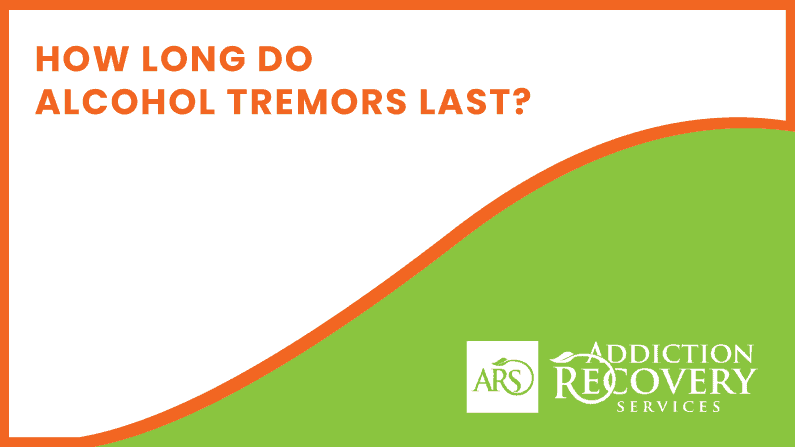
Almost 20% of adults in New Hampshire report binge drinking in the past month. Long-term alcohol consumption can lead to alcohol use disorder and the potential for withdrawal when consumption stops. Withdrawal from alcohol can begin as soon as 8 hours after the last drink is consumed, but what does this have to do with tremors?
One of the symptoms of alcohol withdrawal is tremors, but sometimes these tremors come along with a condition known as delirium tremens. Here at Addiction Recovery Services in New Hampshire, we offer Medication-Assisted Treatment to help those recovering from alcohol use disorder safely stop drinking in order to lessen the severity of withdrawals like these.
If you start having tremors as part of the side effects of withdrawal, they can last anywhere from 2-10 days after your last drink.
What Should I Do If I Get Alcohol Tremors?
Table of Contents
If you start to notice that you’re experiencing tremors after drinking alcohol, it’s important to pay attention to what other symptoms might be presenting themselves. Alert a trusted person as well so they can assist in monitoring you. They can help track if symptoms do get worse and can react to help you get any medical assistance you might need.
There are medications that can help with tremors, as well as lifestyle changes that can help lessen tremors as well, such as regular exercise, hydration, and avoiding caffeine.
How Much Alcohol Do You Have to Drink to Get Alcohol Tremors?
The severity of withdrawals can vary from person to person based on many factors such as age, metabolism, other substances you consume, and even what kind of drinks they normally partake in. Severe withdrawals, like tremors, are typically more common in those who drink heavily.
Withdrawal symptoms are most common in those who drink a large amount of alcohol daily over a period of several months.
In most cases it is one or any combination of these listed drank every day:
- 4-5 pints (about 2-2.5 liters) of wine
- 7-8 pints (about 3-4 liters) of beer
- 1 pint (½ liter) of “hard” alcohol
Tremors and Alcohol Withdrawal
Tremors are one of many side effects that can come from alcohol withdrawal, though they may be a sign of something more serious known as delirium tremens, which can also occur in those withdrawing from alcohol.
Here are some other symptoms you should look out for if you’re worried about delirium tremens:
- Deep sleep that lasts for days
- Sudden and severe confusion
- Irritability
- Hallucinations
- Fatigue
- Extreme sensitivity (light, sound, touch, etc)
- Sudden mood changes
- Restlessness
- Seizures
There are other side effects that can come from alcohol withdrawal as well that are not linked to delirium tremens like nausea, loss of appetite, pale skin, sweating, and palpitations.
Symptoms can worsen quickly once they start developing, and normally peak in the first 3 days after your last drink. If you start noticing symptoms of delirium tremens, you should seek medical help.
Recovery and Treatment Services For Alcohol Use Disorder
Detoxing from alcohol doesn’t have to be dangerous or painful with the right treatment options. Here at Addiction Recovery Services in New Hampshire, we offer Medication-Assisted Treatment (MAT) to help those looking to start their recovery journey from alcohol use disorder. MAT uses specific medications designed to relieve the mental and physical strains of withdrawal, and it also helps curb cravings. This allows you to better focus on your recovery and healing.
If you or a loved one is looking to start treatment for alcohol use disorder, or if you have any questions about withdrawal and our treatment options, give us a call today at 978-228-5853.
FAQs About How Long Do Alcohol Tremors Last
Are tremors a sign of alcohol withdrawal?
Yes, tremors can be a sign of withdrawal. They can sometimes be an indicator of a condition known as delirium tremens, which can occur during withdrawal.
Is there a medication that will help control alcohol tremors?
There are medications that can help curb and reduce the side effects of alcohol withdrawal, including tremors.

